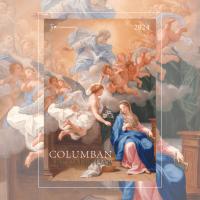
Photo by icon0.com from Pexels
This Sunday’s gospel continues to lead us into an understanding of the kingdom of heaven through parables. It is always worth mentioning that a parable is designed to make us think; Jesus used parables to challenge his listeners to go beyond what they knew or thought they knew about their relationship with God, the world and the devil.
This gospel written for the Matthean community addresses their lived Christian community experience and the challenges they faced.
The first parable concerns a farmer who sows a field of wheat with good seed but an enemy comes at night and adds darnel to the crop. Bearded darnel is a weed, it cannot be distinguished from wheat until the wheat has ripened. Then the darnel is separated from the wheat at harvest time when it is collected and burnt. (There is evil in the world).
We might ask who were the ‘weeds’ in the early Church? Were the weeds people or ways of thinking that caused trouble? For example, the difficulty of the Jewish and Gentile Christians to blend as one community given their different cultural backgrounds. There were those who rejected the Church in persecution and wanted to return.
Today, we might ask ourselves questions. Do we apply this parable to ourselves, recognising our sinfulness; do we apply it to our Church which has been exposed as a Church full of weeds due to the sexual abuse of children and vulnerable people? The parable leads us into asking difficult questions without giving specific answers but points in a definite direction. What does Jesus think about this? What is the Spirit telling us?
Similarly, the parable of the mustard seed reminds us that the Christian communities today have a global reach but they started in Palestine. Small communities described in the New Testament were a humble beginning. History recounts the strength of the Church and its failures but today it is a global church.
Today we experience stresses and strains in the Church, the different attitudes towards authority, the more traditional approach, the more synodal approach, a poor church, a wealthy church in a fast changing world. Questions present themselves when we think of the Church today. Once it was small, now it is enormous with billions of followers.
The parable of the yeast was understood because people baked their own bread. Yeast was a small piece of dough kept over from previous baking which had fermented; but it transformed a lump of dough into bread through a dynamic process.
The communities in St Matthew’s day were like a’ leaven’ in society, worshipping Jesus as the Messiah. They caused trouble by offering people a new life in Christ which was different to their present way of life. Acts 17:6 is a vignette of the trouble the disciples caused in society.
Finally, there is judgement for us all. The parables inform us how to live: Jesus is the just judge, he does not need us to pre-empt his decisions though we do like to pass judgement on others!
Columban Fr Gary Walker is currently living at the Columban house in Sandgate, Brisbane.


